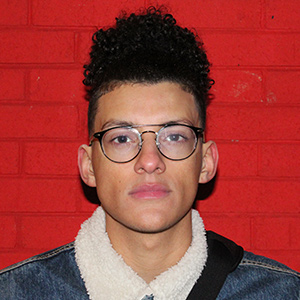History & Hispanic Heritage are One in One

Being Latino in America, I received two kinds of education: the national curriculum and my cultural values. Growing up through the Manchester school system, I was taught about all the important figures and events in US history that molded America. I was fed traditional American meals in school, such as a cheeseburger with a box carton of milk. I was a member of my elementary and middle school concert band, usually learning and playing pieces known as American classics. Outside of school hours, I was learning how to cook traditional Puerto Rican dishes, celebrate holidays according to cultural customs, and attending a Spanish-speaking Catholic church.
It wasn’t until I attended college that I truly realized the lack of my ethnic history in my education growing up. The people I learned about in school didn’t look like me. At home, my knowledge depended entirely on what my parents and family would tell me. I used to count the days until Columbus Day because I could stay home from school, but now my eyes are opened to how much Columbus shaped my history. This day is so relevant because it happens to fall within Hispanic Heritage Month on October 12th. Though the Manchester Board of Education has designated this holiday Indigenous Peoples Day, not every town is as up to date as Manchester. Columbus invaded lands, enslaved natives, and spurred the killing of thousands to expand territory of the New World. These are just a few reasons why we shouldn’t celebrate Columbus on this day. Instead, some Latin American countries celebrate El Día de la Raza (The Day of Race) which is a celebration that focuses on the fusion of new cultures brought to the Americas after Columbus’ exploration. SOURCE
So why is this important? Well, Hispanic Heritage Month is a greater celebration of all Hispanic knowledge. Whether it’s learning how the Spanish-American war impacted almost every Latin country or how to dance cumbia or why “empanadilla” means something different to me than someone from Uruguay, all of this knowledge is part of what Hispanic Heritage Month is all about.
The first important thing to acknowledge is why Hispanic Heritage month runs from the middle of September to mid-October. Many Latin American countries such as Costa Rica, El Salvador, Guatemala, Honduras and Nicaragua gained their independence on September 15th. Mexico and Chile also celebrate their independence on September 16th and September 18th, respectively. In 1988, Hispanic Heritage week was transformed into Hispanic Heritage month, meant to be celebrated nationwide. SOURCE
There’s a reason why a large Mexican population lives in the western United States, or a large Cuban population in the south, or Dominican and Puerto Rican populations up north. These ethnicities and many others make up the genetic code of the US. Throughout these communities the presence of ethnic cultures can be seen. For example, in New York City and Hartford thousands of Puerto Ricans gather in the summer to celebrate the Puerto Rican Day parade, emphasizing the celebration of Puerto Rican culture and identity. Hispanic Heritage Month allows for the celebration of all cultures in the Latin Diaspora, and because it’s so vast there’s so many people who take part in it.
The importance of Hispanic Heritage month can be seen through the impact it has not only on people within the Latin diaspora, but those outside of it as well. How is it celebrated one may ask? In the past, the month is typically celebrated with gatherings for education, entertainment, and/or celebration. Due to COVID-19 regulations, celebrations were focused more on the highlighting of accomplishments within the Latinx community and their respected field. I always like to highlight the history and importance of salsa during this month. In fact it holds so much value to me that I used to be a part of an organization on UConn’s campus when we would teach salsa and its history. It’s complex combinations of music from all over the Caribbean and Africa create a deeper meaning to the music that is so enjoyable to dance to. Names such as Mark Anthony, Celia Cruz and Hector Lavoe have created some of salsa’s most infamous works. Aside from being able to hear the stories told from famous artists through music, it’s also important to highlight all voices from the Latin diaspora. Many people, same as me, should be given a platform to speak on their experiences and feelings. During a time where people can feel so muted, months like this or Black History Month allow for voices to be heard.
As we approach October 15th, there’s no need to stop celebrating the Latin culture. Every day is a new day for people to celebrate their latinidad. Even when Hispanic Heritage Month is over, I would suggest supporting a Latinx owned business, and do more than just enjoy the products and services of the business. Understand the difference amongst various restaurants’ menus and ingredients. Go to Mary Cheney Library and check out their section filled with Latin American literature. Listen to friends or loved ones who have a story to tell because their voice matters. Most importantly, continue to care about cultural differences outside of their celebrated dates. Happy Hispanic Heritage Month to you all!
Like this article?
Leave a comment
About Author

Born and raised in Manchester, Jakob is the Diversity, Equity and Inclusion Coordinator for the Neighborhoods and Families Division. He is currently in his undergrad at UConn majoring in Urban and Community Studies. He has a passion for equality, music and the residential life in Manchester.
Fun Fact #1: I love to dance and eat salsa.
Fun Fact #2: I am a song writer and musician.
